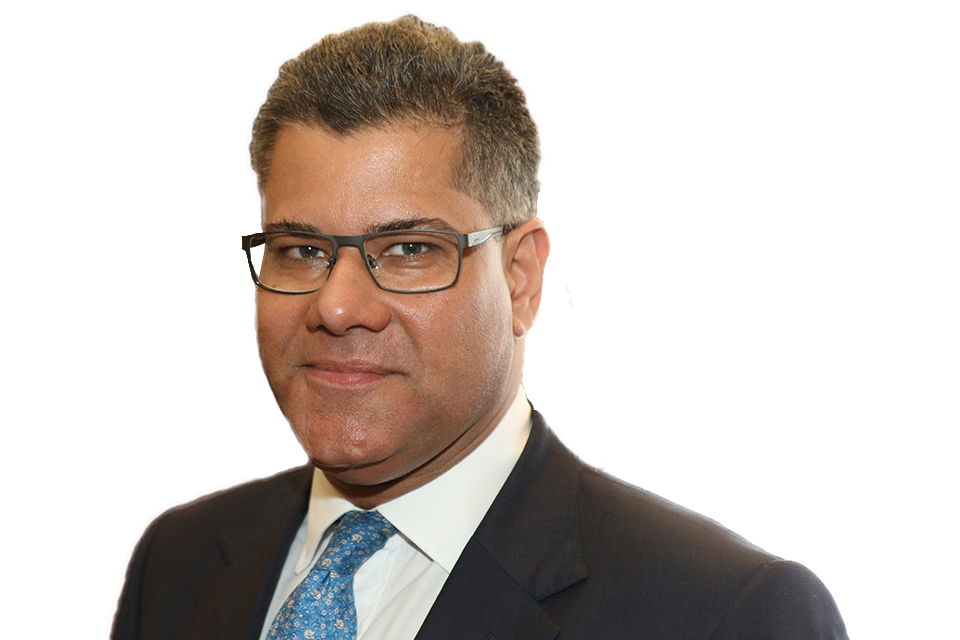Alok Sharma – 2022 Speech at the Commonwealth Business Forum in Rwanda
The speech made by Alok Sharma in Kigali, Rwanda, on 23 June 2022.
Thank you for the introduction.
I am delighted to be here today.
Over the past two and a half years, I have spoken at numerous conferences and summits around the world.
Virtually and, of course, physically, I have delivered many, many hundreds of speeches.
In doing so, I’ve shared stages with representatives from government, from business, and from civil society.
You’ve just heard from FIFA. I think someone was lucky enough to get a ball too.
You will soon hear from Google, the Norwegian-African Business Association.
And each organisation is working to shape a future in which we can deliver prosperity, but without sacrificing the planet.
For me, it is truly encouraging to see such broad agreement on the need for climate action.
And I do believe that we have hit that inflection point where governments, business and civil society are broadly united in wanting to tackle climate change,
And deliver both an environmental and economic dividend.
And I am pleased therefore that Rwanda and its role as Commonwealth Chair in office is using this session to consider how we deliver economic prosperity without sacrificing the planet.
And it is a key question that our family of Commonwealth nations needs to address, and address urgently,
How we can achieve collective prosperity, economic sustainability and societal resilience, all at the same time.
That, my friends, is the ball that I am kicking to you.
And if we are to achieve these goals, working through the international system, it’s going to be absolutely critical
I mean, just look at COP26. Some of you who are with us today were also with us in November
Back then, under the UK’s stewardship, almost 200 countries forged the historic Glasgow Climate Pact.
Despite challenging global geopolitics even then we were able to bring nations together.
Because each of us recognised that it was in our collective self-interest to act on climate.
The Glasgow Climate Pact forges a path to a clean global future.
It keeps alive the possibility of limiting the rise in global temperature to 1.5 degrees.
And it told a watching world that leaders – including many of the leaders who are here at this conference – it told the world that leaders could and would rise above their differences, and unite against that common challenge.
The Pact calls on countries to phase-down unabated coal power and phase-out inefficient fossil fuel subsidies.
It contains big commitments on climate mitigation, on adaptation and on finance.
And it also sets out a way forward on the crucial issue of loss and damage.
It was for me an extraordinary privilege to play my part as Shepherd-in-Chief at that event.
Of course, we have to acknowledge that the world has changed since then.
We meet today against the backdrop of multiple global crises.
Indeed, the Managing Director of the International Monetary Fund, Kristalina Georgieva, has described our situation as “the most universally complex policy environment of our lifetime”.
Therefore, climate is understandably no longer on the front pages.
But the current crises should increase, not diminish, our determination to deliver on what the world agreed in Glasgow.
Even as we deal with the immediate challenges facing us, all the evidence, including the latest findings from various UN reports, makes clear that the chronic threat of climate change is getting worse.
My friends I have to say this to you, climate change does not recognise borders – look in your own countries and see what’s happening – and the Commonwealth is no exception to facing the harsh impacts of global warming.
Last year we saw wildfires rage in Australia.
This year, India and Pakistan have experienced unbearable temperatures.
A billion people exposed to extreme heat in some of the hottest months since records began.
And in South Africa where I have just come from, floods have swept the province of KwaZulu-Natal, destroying buildings and claiming lives.
At the same time, Vladimir Putin’s illegal, brutal and unprovoked war against Ukraine has amplified that climate and environmental security are interlinked with energy and national security.
And that is why the UK is so focused on using the remaining months of our COP26 presidency to turn commitments into action.
What it needs, friends, is for us to focus on implementation.
Every country must respond to the Glasgow Climate Pact’s call to revisit and strengthen their 2030 emissions reduction targets this year.
And we need countries to submit those emissions reduction targets by the UNFCCC’s deadline, on September 23rd including their long term strategies.
We are continuing to push for practical progress on mitigation, on finance, on adaptation, and on loss and damage.
We continue to press for further progress in critical sectors and on clean technologies.
And I remain especially focused on the most climate vulnerable countries and communities, many of whom are represented here.
Because, for these nations in particular, the situation is devastatingly clear.
As Prime Minister Mia Motley of Barbados told us in Glasgow, for her country, “a two degrees rise is a death sentence”.
For many, tackling climate change is literally that, it’s the difference between life, and death.
So to deliver on effective climate action we are going to continue to push forward for more funding through Just Energy Transition Partnerships.
We’re going to be working on increasing finance for adaptation, including ensuring the private sector is mobilising finance as well.
And it means listening to the consistent calls from climate vulnerable countries to improve access to finance as well.
If I just say to you that in Africa, Africa is responsible for less than 3% of global emissions and yet on this continent there are very many countries that are on the front line of climate change.
And therefore we know that change is necessary.
We know that change is in our collective self-interest.
And we know that change will not happen unless we act, and unless we act now.
And so it is time for world leaders, the leaders here at this conference to demonstrate that they are delivering on the commitments they have made.
Together, we can, and we must, make this a year of delivery, to keep 1.5 degrees alive, and to deliver prosperity, without sacrificing the planet.
Thank you.


